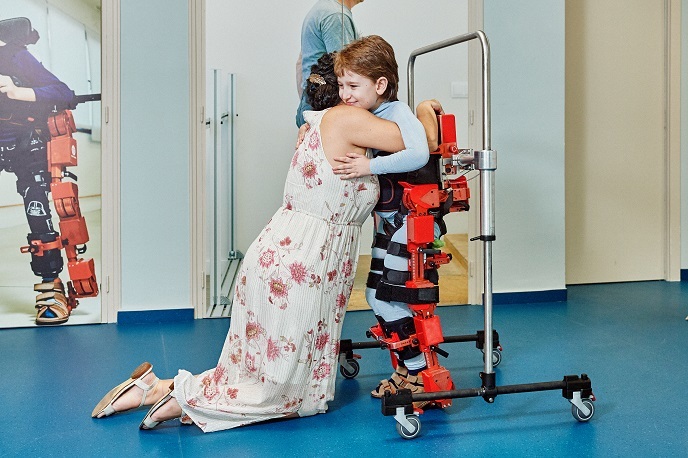Much-needed evidence for the treatment of severe breathlessness
Breathlessness is a distressing sensation of struggling for air, with the lungs working harder to take in oxygen. The condition – common in people with severe chronic obstructive pulmonary disease (COPD) or interstitial lung disease (ILD) – affects approximately 15 million Europeans, posing a significant challenge due to the lack of licensed medications specifically targeting this symptom.
European practices to alleviate breathlessness
Recognising this gap, the EU-funded BETTER-B programme aimed to significantly improve the treatment of severe breathlessness in patients with advanced diseases. As a first step, the project conducted a Europe-wide survey among respiratory and palliative care physicians. “This survey uncovered a striking divergence in breathlessness management practices, highlighting the urgent need for standardised guidelines and expanded treatment options,” highlights project coordinator Irene J. Higginson. Νon-drug therapies like pulmonary rehabilitation and physical activity have proven beneficial in many cases but were not always used while only 17 % of respondents were aware of or had studied guidelines. These findings underscore the importance of raising awareness of and adherence to evidence-based guidelines among healthcare professionals for the treatment of severe breathlessness. Towards this goal, researchers developed user-friendly, widely accessible guidelines to improve clinical guidance, streamline breathlessness management and ensure equitable access to optimal care for all patients.
‘Off-label’ prescribing
The survey also revealed that many doctors resort to prescribing medicines in a manner different from their licence to help patients (off-label prescribing). Importantly, the survey found instances where clinicians opted for these off-label options without first trying evidence-based non-drug treatments. Clinicians use various off-label prescriptions, including common anti-anxiety and anti-depressant drugs. Notably, the survey revealed a concerning reliance on benzodiazepines traditionally employed to treat anxiety and insomnia. More than 1 in 10 physicians recommended antidepressants for patients with advanced COPD, even where there was no evidence of depression. Although emerging evidence had suggested that serotonin played a role in the control of respiration and perception of breathlessness, the exact mechanism is unclear.
An international trial
At the heart of BETTER-B was an investigation into the potential of mirtazapine to alleviate severe breathlessness. While traditionally used for depression, mirtazapine's unique properties made it a compelling candidate for alleviating severe breathlessness in patients with advanced respiratory disease. Through a large-scale international phase 3 randomised controlled trial, BETTER-B evaluated the effects on mirtazapine on patients and their wellbeing. The study found that contrary to the team’s initial hypothesis, administration of mirtazapine did not yield significant benefits compared to a placebo. Similar results were observed for secondary measures such as quality of life, anxiety and depression. In contrast, patients treated with mirtazapine experienced slightly more side effects and needed more care than those receiving placebo. The study concluded that mirtazapine should not be used to alleviate breathlessness, raising doubts about the effectiveness of antidepressants as a treatment for severe breathlessness in people with respiratory diseases. Importantly, it emphasises the necessity of conducting clinical trials to evaluate therapies for breathlessness, rather than relying on anecdotal or small non-comparative studies that can overstate therapeutic benefits. “The findings from BETTER-B underscore the importance of prioritising evidence-based treatments for breathlessness, implementing guidelines, and exercising caution when considering off-label medication use,” emphasises Higginson. Overall, BETTER-B pioneered a step change towards evidence-based management of severe breathlessness, recommending holistic non-pharmacological approaches such as pulmonary rehabilitation and breathlessness support services as first-line treatments. Importantly, BETTER-B findings contribute to improving the lives of people across Europe by revealing that a treatment currently used by some clinicians lacks benefits and therefore is not recommended.
Keywords
BETTER-B, breathlessness, mirtazapine, survey, respiratory disease, COPD, palliative care, ILD, evidence-based guidelines, end-of-life care, hospice







